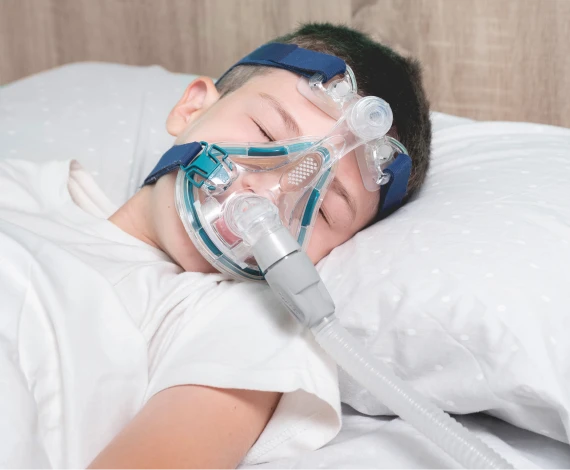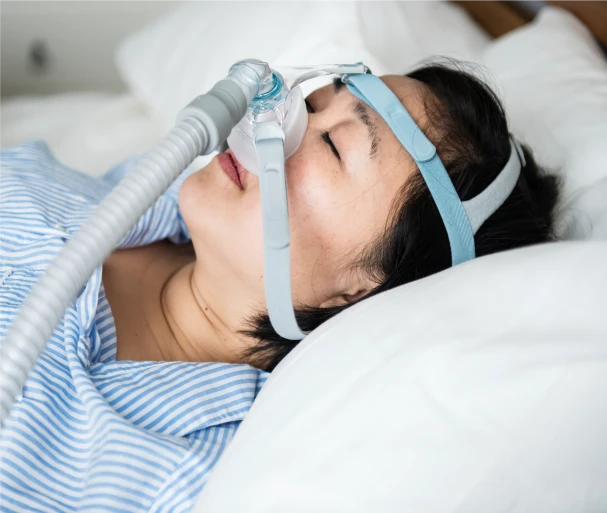- Mitchell
- 0 Comments
A continuous positive airway pressure machine, better known as a CPAP machine, is one of the most common and well-known treatments for sleep apnea. However, many people may find that CPAP makes it difficult to sleep and have trouble with adherence due to the CPAP mask and other side effects.
Because of this, they try other methods to treat their obstructive sleep apnea like oral appliances. But these devices may not be as effective, and CPAP may be the best option for sleep apnea.
Which is More Effective, CPAP or Oral Appliance?
Both CPAP devices and oral appliances can be effective, however, the CPAP vs oral appliance debate is usually won by CPAP devices who have many benefits over oral appliance therapy with five critical factors making them more effective.
- Effective Treatment for Severe OSA: While oral appliances may be able to treat a mild or even moderate sleep disorder, CPAP has long been proven to be an effective treatment for severe sleep apnea. Uncontrolled Sleep Apnea can be dangerous to your health and can lead to heart disease and high blood pressure among other ailments, so you want to ensure that you choose an effective treatment for your OSA.
- Improved Cardiovascular Health: OSA can be incredibly hard on the heart and CPAP can help prevent this degradation of your cardiovascular health. OSA can cause a person to stop breathing hundreds of times during the night and this causes you to have poor sleep.
OSA also increases the pressure on your heart and surrounding blood vessels, ultimately damaging the heart muscle. OSA can even cause arrhythmias severe enough to stop your heart. CPAP allows you to breathe properly throughout the night by preventing airway obstruction so you can get a good night’s sleep, protecting your cardiovascular health.

- Better Daytime Functioning: OSA can substantially harm your sleep quality because the breathing pauses can wake you up multiple times during the night, even if you don’t notice it. This can cause extreme daytime sleepiness depending on your apnea-hypopnea index. With CPAP, you can sleep throughout the night and be more effective during the day to do things like work out to reduce obesity.
- Reduced Risk of Other Health Problems: OSA can lead to a myriad of health conditions other than heart conditions including high blood pressure and type 2 diabetes, daytime drowsiness, and snoring. CPAP can help prevent these, lead to snoring reduction and better health outcomes, depending on patient compliance, by preventing breathing pauses.
- Long-Term Benefits: the treatment efficacy and long-term effectiveness of CPAP means that you will see long-term benefits. While CPAP can result in immediate symptom relief, over time CPAP usage can result in lower blood pressure, better cardiovascular health, and improved cognitive function.
What are Oral Appliances for Sleep Apnea?
An oral appliance is a type of sleep apnea device used for treating obstructive sleep apnea (OSA). Obstructive sleep apnea causes your airways to be either partially or completely blocked while you sleep causing breathing pauses. This can be incredibly dangerous, and an oral apnea device is designed to correct this issue by keeping your mouth in a position that allows you to breathe throughout the night.
How Oral Appliances Treat Sleep Apnea?
The most common oral appliances used to treat sleep apnea are known as mandibular advancement devices (MADs). These devices are typically a customized treatment designed for comfort to fit your mouth and work by pulling your lower jaw forward. This also pulls your tongue forward and creates more space for airflow in the back of your throat.
Another option is a tongue-stabilizing device which works by holding your tongue in place while you sleep. These typically aren’t as effective as MADs and are most often used by people whose teeth aren’t strong enough for MADs. Either way, oral devices for sleep apnea are most effective for people with mild or moderate sleep apnea who cannot use CPAP machines for some reason or another and are most effective when custom-fitted. However, they have the benefit of portability.
How Does CPAP Treat Sleep Apnea?
CPAP machines are the most common treatment for people with obstructive sleep apnea and work to keep your airways open by applying continuous levels of air pressure. A CPAP machine typically consists of a mask that is placed over the nose and mouth which is connected by a tube to a motor that blows air through the tube and mask into the nose and mouth.
This air pressure keeps your tongue and other things in your mouth from shifting too far into your airways while you sleep, stabilizing your breathing and improving your sleep quality. BiPAP for sleep apnea is one of the CPAP alternatives that differs from CPAP in that it provides a different level of air pressure depending on whether you are inhaling or exhaling and can be a better option depending on patient preferences. The benefits of using a CPAP Pillow can also make the device more comfortable and can help deal with compliance challenges.
Say Goodbye to Sleep Apnea with Zzoma
While the CPAP oral appliance debate is an important one, there are other treatment options available to prevent breathing events. Zzoma is a sleep apnea treatment device designed for those with positional sleep apnea that works by keeping you in a specific side position while you sleep that helps keep your airways open.
Zzoma has many benefits over oral appliances and CPAP because it requires no mask or anything that interferes with your mouth. This can help you sleep more comfortably while treating your sleep apnea. When you talk to your doctor about treatment selection, be sure to mention Zzoma.
